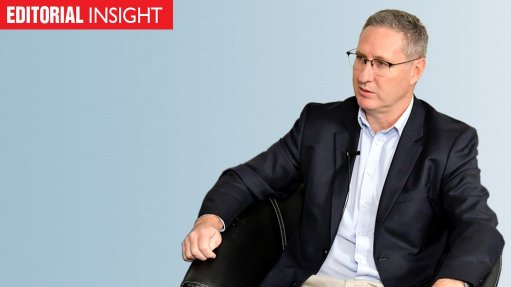
Mineral Resources and Energy Minister Gwede Mantashe has confirmed that he aims to secure Cabinet approval to publish an updated Integrated Resource Plan (IRP) for public consultation during a Cabinet meeting this month.
Dubbing the draft update ‘IRP 2023’, he reports that he even decided not to physically attend a mining conference in Australia so that he could personally present the draft to a Cabinet committee meeting that will prepare the way for its tabling before the executive.
Cabinet last met on August 30, and because it typically convenes on Wednesdays on a fortnightly cycle, it is possible that the IRP update could be considered on September 13.
Mantashe has already confirmed that the document will be broken into two phases, with the first phase outlining electricity generation additions to 2030 and the second covering the period beyond that date.
Given his vocal support for gas, nuclear and what he calls clean-coal technology, there is an expectation that these technologies could receive greater prominence in the new IRP than is the case with the current IRP 2019. The extension of the timeframe beyond 2030 is also likely to be supportive of a new nuclear allocation, considering the protracted lead times involved in approving, financing and building new reactors.
While the update is overdue, there is concern that the drafting process has been driven politically rather than technically, although it is unclear who has led the drafting process and what role Eskom has played.
If overly political, “policy adjustments” (decisions that deviate from the least-cost technical case in order to accommodate industrial or social objectives) may be embedded rather than introduced and the IRP’s credibility will be undermined.
In the context of an emerging competitive market, this lack of credibility will be reflected in market participants paying far less heed to the government plan, with projects implemented for financial returns only and with limited, or no, reference to developmental objectives.
The problem with such a scenario is that the disconnect between the political economy and the real economy in the sector could widen to the point where independent power producers become convenient scapegoats when things inevitably go wrong.
It is therefore important that the IRP is as rooted in techno- economic and financial realities as possible to avoid a situation where legitimate policy babies can easily be thrown out based on arguments that the bath water is too ideologically contaminated to be considered for safe use.
Mantashe has confirmed that he is “obliged” to take the updated IRP through a public consultation phase once he has received approval to do so. Nevertheless, he is adamant that the update should be finalised this year, a timeline reinforced by his continual reference to IRP 2023.
Too much haste now could result in less speed, however, as there is likely to be extreme contestation at a time when industry participants are also expected to apply their minds to the far-reaching Electricity Regulation Amendment Bill, as well as several big ticket regulatory and policy decisions.